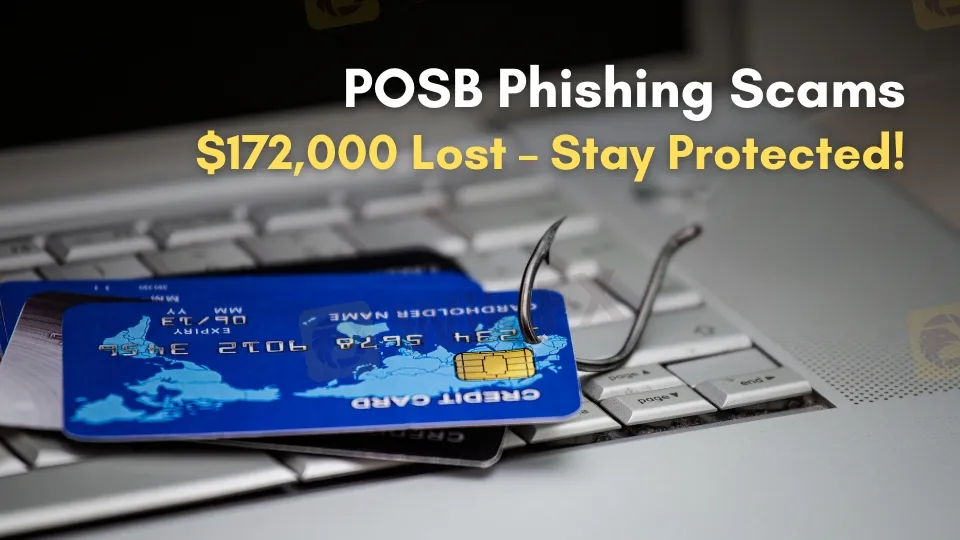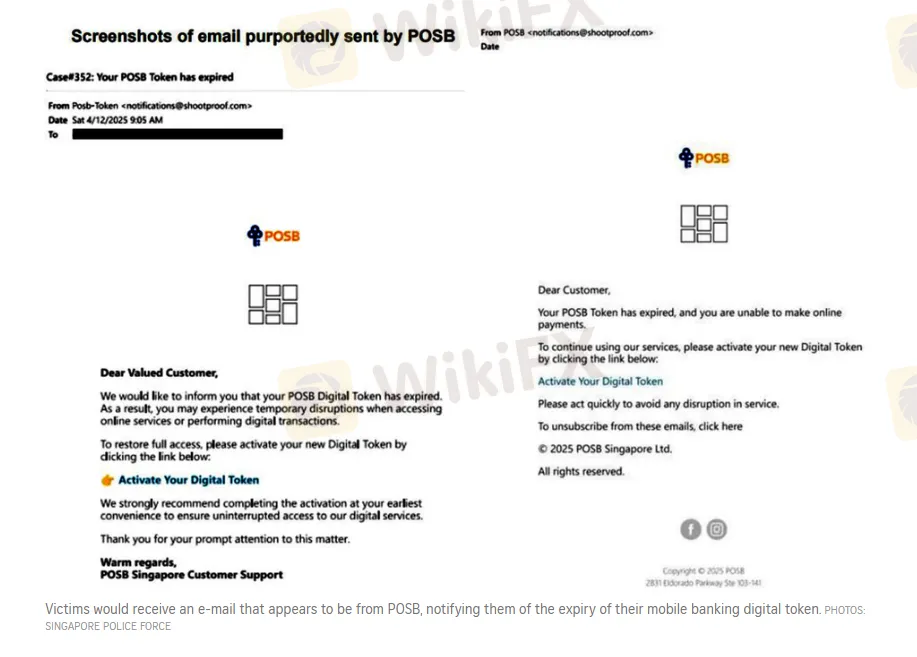简体中文
繁體中文
English
Pусский
日本語
ภาษาไทย
Tiếng Việt
Bahasa Indonesia
Español
हिन्दी
Filippiiniläinen
Français
Deutsch
Português
Türkçe
한국어
العربية
Beware of POSB Phishing Scams: $172,000 Lost! Protect Yourself Now
Abstract:Over $172,000 lost in POSB phishing scams since April. Learn how to protect yourself from banking fraud with these crucial safety tips.

Since April, phishing scams targeting POSB customers have led to at least $172,000 in losses. The police have received 13 reports related to these scams, where cybercriminals impersonate the bank to steal personal information.
Victims receive an email that appears to be from POSB, claiming that their mobile banking digital token is about to expire. The email urges them to activate or update their token by clicking on a link provided in the message.
However, this link directs them to a fraudulent website designed to steal sensitive information. Once victims enter their banking credentials, card numbers, and one-time passwords, their accounts are compromised. Unauthorized transactions, often in foreign currencies, typically alert them to the scam.

On May 6, police issued a public warning, advising people to avoid clicking on links in suspicious emails, SMS messages, or communications from platforms like iMessage or Androids rich communication services, which claim to be from banks.
To prevent such attacks, customers are encouraged to set transaction limits on their internet banking and utilize features like Money Lock. Money Lock allows users to digitally secure their savings in an account from which no funds can be withdrawn, adding an extra layer of protection.
Singapore experienced a record $1.1 billion in scam losses in 2024, highlighting the growing threat of phishing fraud. Victims are urged to stay cautious and avoid interacting with unsolicited messages or clicking on unknown links.

Disclaimer:
The views in this article only represent the author's personal views, and do not constitute investment advice on this platform. This platform does not guarantee the accuracy, completeness and timeliness of the information in the article, and will not be liable for any loss caused by the use of or reliance on the information in the article.
Read more

ASIC Launches Streamlined Digital Platform for AFS Licensing
ASIC launches a new digital AFS licensing platform on May 5, 2025, streamlining applications with a user-friendly interface and enhanced features.

Global Traders Sound Alarm Over Dollars Markets' Shady Practices
This article exposes the alarming experiences of global traders with Dollars Markets, a low-rated and blacklisted broker, highlighting serious issues such as withdrawal delays, suspicious payment methods, and possible links to illegal online gambling.

Exposing the Dark Art of Pig Butchering Scams
A new type of scam is spreading fast through the world of online trading and cryptocurrency. It’s called the "pig butchering" scam. The term “pig butchering” comes from a Chinese phrase, “Sha Zhu Pan”, which describes the way a scammer treats their victim like a pig by slowly “fattening” them up with kindness and attention before “butchering” them for money.

Clicking on a Facebook Ad Cost Him His Life Savings of RM186,800
A 70-year-old retiree from Muar, Malaysia, lost RM186,800 of his savings after falling for an online investment scam that was advertised on Facebook.
WikiFX Broker
Latest News
EUR/USD at a Critical Juncture: Can the 1.13 Level Hold?
Meta Cracks Down on Scam Networks Targeting Brazil and India
Clicking on a Facebook Ad Cost Him His Life Savings of RM186,800
Are You Trading or Are You Gambling?
Essential Features to Look for in a Trading Platform
Fraud Claims Rise Higher Than Ever Against Trading Platforms
Why Digital Assets Are Surging Today?
Exposing the Dark Art of Pig Butchering Scams
ASIC Launches Streamlined Digital Platform for AFS Licensing
Global Traders Sound Alarm Over Dollars Markets' Shady Practices
Currency Calculator


